Illiberal Democracy
by TamilNet, October 18, 2006
|
Colombo repealed the protection [for minorities] in the 1972 Constitution of the Democratic Socialist Republic of Sri Lanka and included articles entrenching foremost place and state patronage for Buddhism...Contrast this to the first amendment of the US constitution, considered one of the most liberal: “Congress shall make no law respecting an establishment of religion, or prohibiting the free exercise thereof; or abridging the freedom of speech, or of the press; or the right of the people peaceably to assemble, and to petition the government for a redress of grievances.”
|
Electoral democracy in Sri Lanka, bolstered by regularly held "open, free and fair" elections, is often characterized as robust and vibrant by the international community. However, Sri Lanka has been plagued by decades of ethnic violence. Discriminatory legislation and a politicized judiciary have bred inequality, have failed to deliver social justice, and have raised explosive issues related to sovereignty in the multi-cultural state. The reasons for Sri Lanka gaining increasing notoriety as a violator of international norms in human rights, and the island emerging as a killing field, can be traced to its polity's gradual, inexorable shift towards an illiberal democracy.
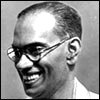
SWRD Bandaranaike Author, Sinhala Only Act, Prime Minister 1956- 1959 |
A liberal constitution that protects minority rights and basic civil liberties (speech, religion, assembly and property), and which fosters other liberal ideals (press freedom, independent judiciary), is a pre-requisite for a democratic state to progress towards achieving the ideal "goals" of democracy – social justice, equality, and ethno-political neutrality.
From the time of independence in 1948 Sri Lanka has been drifting towards a highly centralized state, with the discriminatory application of law by a blatantly politicized judiciary, and the institutionalization of discriminatory language and religious policies detrimental to minorities.
The Sinhala Only Act, passed as law in 1956, was a watershed event marking the State legislature’s first foray into legislative illiberalism, encroaching on the rights of non-Sinhala speaking citizens of Sri Lanka.
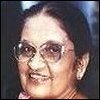
Srimavo Bandaranaike, Prime Minister July 1960- March 1965, and May 1970- July 1977 |
Article 29 (2) of independent Sri Lanka's Soulbury Constitution barred the Ceylon Parliament from enacting discriminatory legislation against a particular ethnic or religious group. Colombo repealed the protection in the 1972 Constitution of the Democratic Socialist Republic of Sri Lanka and included articles entrenching foremost place and state patronage for Buddhism.
This enactment of a new constitution exposed the vulnerability of Sri Lanka’s rulers to succumbing to electoral ethno-political pressures and signaled Sinhala polity turning towards constitutional illiberalism as a means to assist ethnic outbidding.
Contrast this to the first amendment of the US constitution, considered one of the most liberal: “Congress shall make no law respecting an establishment of religion, or prohibiting the free exercise thereof; or abridging the freedom of speech, or of the press; or the right of the people peaceably to assemble, and to petition the government for a redress of grievances.”
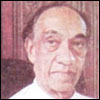
JR Jeyawardene President, Feb 1978- Jan 1989 |
Introduction of a powerful executive presidency in the 1978 constitution shifted concentration of power to one branch of government. Execution of Presidential powers since 1978, including sacking of the elected parliament by Ms Kumaratunge, validated James Madison and Alexis de Torqueville, who feared that without adequate constitutional safeguards and "checks and balances" among multiple branches of government, "majority will incline towards tyranny."
The State, unwilling to explore devolution of power to satisfy Tamil demands in the 50’s, turned to its ceremonial armed forces to suppress the increasing political-resistance of Tamil people in the 60’s. When the struggle turned into armed resistance in the late 70’s by the Liberation Tigers who challenged the sovereignty of Sri Lanka on land and sea using its substantial military assets, Colombo turned to illiberal instruments to sanction repressive measures against sections of its citizenry.
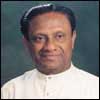
|
Ranasinghe
Premadasa
President Jan 1989-
May 1993 |
Liberal democratic principles were compromised by the enactment of the draconian Prevention of Terrorism Act (PTA), which created a climate of impunity to the mono-ethnic-majority -dominated security forces for human rights violations. The Chemmani mass graves investigations, the Bindunuwewa acquittals, and the reluctance of Colombo to investigate the Jan 2006 execution-style killing of five Tamil students in Trincomalee have raised critical questions about the deteriorating illiberal democracy and the State’s ability to protect its vulnerable citizenry from the excesses of the security forces.
In 2005, the Supreme Court, acceding to Sinhala nationalist sentiments, derailed a
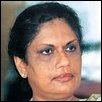
|
Chandrika
Kumaratunge
President Nov 1994-
Nov 2005 |
compromise tsunami-aid deal, P-TOMS, that had the potential to bring warring communities together. In a more recent example, emulating behavior akin to that of a rogue state, Sri Lanka's Supreme Court ruled as unconstitutional the UN Rights body's verdict on a human rights case, violating the Vienna Convention on the Law of Treaties.
Contrast this with the trust Americans, especially minorities, have in the US Supreme Court. The regular scholarly debates/discussions by judges and legal scholars, on uplifting American jurisprudence to higher level, continue to educate the public, strengthening the democracy and the rule of law. Infringement on privacy rights/ individual liberty by legislative action taken against new threats to national security, have drawn intense public debate.
The independence of the judiciary in Sri Lanka has been further undermined, and the 17th Amendment to the constitution violated by Sri Lanka’s President’s reluctance to appoint an independent Judicial Commission; his stalling illustrates the authoritative power yielded by Sri Lanka's presidency to flout the provisions of the Constitution with an obliging judiciary.
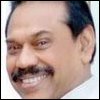 |
Mahinda
Rajapakse
President Nov 2005-
incumbent) |
The Political capital from "democracy," and the post-9/11 anti-terrorism climate have provided a convenient temporary cover allowing the Sri Lankan state to portray all State violence as defensive acts against terrorism. However, the increasing threat of the fragmentation of Sri Lanka is unlikely to be arrested without a “dramatic change” to Sri Lanka’s polity, facilitating Tamils’ very legitimate desire “to be able to control their own lives, to rule their own destinies and to govern themselves in their own homeland, in the areas they've traditionally inhabited.”
Sri Lanka's continued incursions into the illiberal regime will only lead to economic ruin and political instability.
Related articles:
05.08.06 Sri Lanka Army massacres 15 NGO workers
04.06.06 US: Tigers have ‘legitimate goals, unacceptable methods’
11.04.06 Sri Lankan President violates constitution - AHRC
15.07.05 Sri Lanka's Supreme Court issues stay order against P-TOMS
03.07.05 Supreme Difference
21.06.03 Negotiating Tamil sovereignty
20.12.02 PTA, ER, instruments to circumvent Human Rights norms – SC J..
25.10.00 25 killed in detention centre massacre
06.07.98 '300 to 400 bodies have been buried'
External Links:
|
 Home
Home Archives
Archives Home
Home Archives
Archives